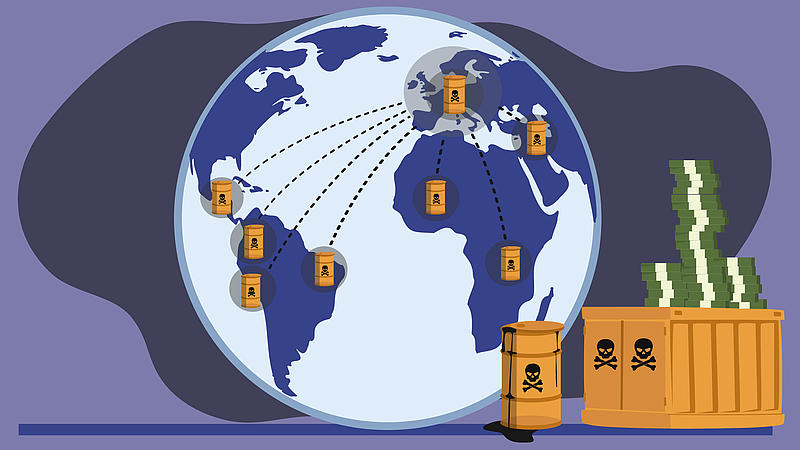The European Union allows companies to sell dangerous pesticides to other countries - even though these pesticides are banned in Europe because they're too dangerous to be used here. Four years ago, the EU promised in the European Green Deal commitments to stop this practice, but the EU Commission has failed to keep its promise and present a legislative proposal by the end of 2023.
This inaction leaves millions of people in non-EU countries exposed to dangerous chemicals while creating a "toxic boomerang" effect as these substances return to European plates through imported foods.
Pesticide giants are making huge profits at the expense of people’s health and the environment. Selling products that are too toxic for the European market to countries outside of the EU is unethical. Commission President von der Leyen promised to put an end to this practice and action is overdue.International Senior Campaigns Strategist
Profits Over Global Health
Recent data from the European Chemicals Agency (ECHA) reveals that EU-based companies exported 173,451 tons of PIC pesticides to countries with weaker regulations in 2023. These exports continue despite several EU Environment Ministers, including those from France, Denmark, and Sweden, urging Commissioner Jessika Roswall to propose legislation to end this harmful practice.
Alarming Findings in Dutch Supermarkets
A new report by foodwatch Netherlands has uncovered disturbing evidence of banned pesticide residues in products sold in Dutch supermarket. The study, analyzing 2023 data from the Dutch Food and Consumer Product Safety Authority (NVWA), found that 8% of products contained residues from pesticides prohibited in the EU. The most affected products include:
- Bananas (78% contaminated)
- Raisins (65% contaminated)
- Rice (30% contaminated)
The "Toxic Boomerang" Effect
Despite strong EU regulations banning certain harmful chemicals, a dangerous loophole exists in Europe's food safety system. The EU continues to allow import tolerances for these banned pesticides through Maximum Residue Levels (MRLs) that exceed detection levels, effectively permitting the presence of banned substances in imported food products.
Civil Society Demands Action
Today, foodwatch international, Broederlijk Delen, CCFD-Terre Solidaire, Fondation pour la nature et l’homme, Humundi, Pesticide Action Network Europe, Pestizid Aktions- Netzwerk Germany, Slow Food and Veblen Institute for Economic Reforms have sent a letter to Commission President Von der Leyen calling on her to end the double standards and stop the boomerang effect.

Stop the Toxic Trade!
Toxic pesticides on our plates: Pesticides banned in the EU are exported – only to return as residues in rice, bananas and raisins. A dangerous boomerang! Urge the European Commission to ban export of these toxic chemicals.
Sources and further information
- foodwatch-Petition
- Report by foodwatch Netherlands (in Dutch)
- Executive summary of Dutch report: Toxic Route. How banned pesticides find their way back on our plates (in English)
- Open Letter by NGOs to Commission President van der Leyen
- Letter by Member States to Commissioner Roswall
- ECHA on exports under the PIC regulation
- Chemicals Strategy for Sustainability
